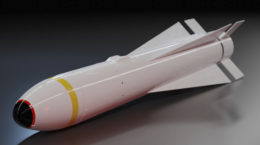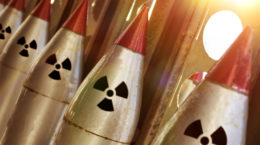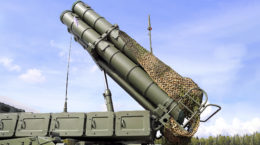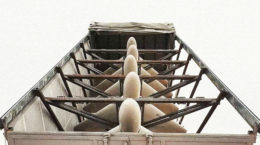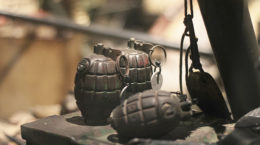From the mid-1990s to the mid-2000s, Belarus actively sold off the contents of the military stockpiles it inherited from the USSR. So actively that it even became one of the largest arms dealers in the world. But over the years the military deports emptied, and the money was still needed. Since then, Minsk has been looking for any way to make money from the arms trade.
Do you know how Belarus has become ‘famous’ in the world for the first two decades of Lukashenko’s rule? Firstly, by the fact that it has become one of the leaders in the world arms trade (selling huge Soviet stocks). Secondly, because a very large proportion of these weapons have been supplied to unstable countries, to various Islamic regimes, and have fallen into the hands of terrorists.
Beltech Holding, BelTechExport, TekhnoSoyuzproject, Spetspriborservice, Beltekh Optroniks, Belvneshpromservis, Minotor-Service и Belspetsvneshtechnika (BSVT) – are all names of Belarusian companies operating in the global arms market. They supplied large amounts of arms, military equipment, components and spare parts for it, munitions and military ammunitions to foreign countries. The contracts amounted to hundreds of millions of dollars, and deliveries took place worldwide.
The USSR turned Belarus into a ‘logistics support base’ for the Western Group of Military Forces, a huge military grouping in the countries of Eastern and Central Europe. And the Belarusian military district itself was the most numerous and well-armed in the USSR. As a result, numerous military depots, airfields and storage bases for military equipment were built in Belarus over half a century. In 1991 all this went to the independent Republic of Belarus, which at first did not understand what to do with this inherited wealth. Such quantities of weapons, munitions and military ammunition would be enough for the Belarusian army for a hundred years of continuous warfare.
When Alexander Lukashenko came to power, he quickly realized that old Soviet weapons could be used to earn good money. According to official data, Belarusian exports of arms, ammunition and military equipment between 1999 and 2006 alone amounted to about $1 billion, making Belarus the 11th largest arms exporter in the world (data by the U.S. Congress). In reality, the volume of Belarussian weapons exports was much higher. Basically, supplies went to Africa, the Middle East, Central Asia states and Latin-American countries. A significant proportion of all those export deliveries went to regions where today the activity of various terrorists is the highest.
In July 2001, the Israeli journalist Kirill Gluzman with reference to competent Israeli sources reported that Belarus was supplying arms to Arab extremists. According to his information, Israeli and European arms trade specialists at that time considered Belarus to be the largest supplier of weapons and ammunition to Muslim extremists in the Middle East and the Balkans. In the first half of 2001 alone, Belarusian companies made major deals at an estimated value of $600 million dollars to sell weapons to Arab countries, Palestinians, and Albanian militants.
According to the same information, the Iraqi Air Force purchased radar stations, modernized air defense systems and military communications facilities from Belarus. All the equipment was smuggled into Iraq and installed at the intended sites by Belarusian specialists. The Palestinians, in their turn, bought a large number of 120mm mortars and shells for them, anti-aircraft and anti-tank missiles, automatic weapons and ammunition from Belarus. And Belarus has supplied the Albanian militants of the Kosovo Liberation Army with assault rifles, machine guns, mortars, anti-tank mines and a large quantity of ammunition.
“Belarus uses the organized clandestine channels for smuggling weapons in order to attract customers and supplies. With the help of the former Croatian Deputy Defense Minister Libo Rojes (Note: known under a number of pseudonyms, one of which is Libo Rojes; for instance, is also known as Hrvoje Petrač), Belarusian ‘salespeople’ have established and control an extensive network of arms sales in the Balkans and Middle East,” Kirill Gluzman wrote. “Rojes operates from the Croatian capital, Zagreb, where he established center of clandestine trade in arms in the mid-1990s during the civil war in Bosnia and Herzegovina. Back then, he sold weapons to all sides – Serbs, Croats and Bosnians – and amassed a wealth of contacts among international suppliers. Now his entire network came at the disposal of Belarus, and it is through Rogers agents negotiate with clients and trades are executed. … The needs of clients such as the Palestinians and Albanians, who do not need particularly sophisticated weapons, are well served by Belarus itself, Belarus sells off either old stockpiles or weapons of its own production. But larger clients, such as Iraq and Iran, require much more sophisticated weapon systems, such as radars, missile guidance systems and so on. Russia helped with the Iraqi military order – most of the machinery and equipment supplied to Iraq from Minsk was actually made in Russia, and Belarus acted as an intermediary in the deal.”
In 2002, former Deputy Foreign Minister Andrei Sannikov said that the Belarusian authorities continued to conceal information about the arms trade, which’s an additional irritant to the Americans. Just then, US State Department spokesman Richard Boucher said, “The United States takes very seriously reports of arms transfers to countries and organizations that support or encourage terrorism. We use various measures to counter such activities, including … applying sanctions where necessary.” According to Reuters, it was about Belarus exporting arms to Iraq in circumvention of current UN resolutions.
A year earlier, Belarusian Finance Minister Nikolai Korbut, answering the questions of parliamentarian Ivan Pashkevich, said that the funds received by the state from the sale of so-called special materials of the Defense Ministry, namely “tanks and other weapons”, were accumulated in the Presidential Reserve Fund’s accounts. At the same time, the minister confirmed that these funds did not figure in “any budget items”.
On February 16, 2002, a delegation of U.S. Congressmen from the House of Representatives comprising James Sexton, Ronald Lewis and Bernard Sanders visited Minsk. The purpose of the visit was a meeting with the Belarusian leadership in connection with information about the country’s sale of arms to countries that support terrorism. A little earlier, on 24 January, Senator Ben Nighthorse Campbell, Chairman of the Commission on Security and Cooperation in Europe (Helsinki Commission) made an appeal to Congress, in which he stated, “I am also deeply concerned by statements that Belarus is supplying lethal weapons to Islamic terrorists, although the Belarusian government denies this information… I seek unanimous consent to the placement of a recent article from Washington Post entitled ‘European Arsenal of Terrorism’ within the Congress documentation.”
There were many similar articles back then. For example, the authoritative British magazine Jane’s Intelligence Digest reported that Belarus, Ukraine and Transnistria supplied arms to Chechen fighters and the Taliban, despite their claims of support for Russia’s fight against separatists and Islamic fundamentalists.
“Belarus, one of the most secretive and irresponsible arms exporters, secretly supplied arms to Chechen fighters through Turkey and Georgia,” Jane’s Intelligence Digest wrote, citing U.S. and Israeli intelligence agencies. “Belarus has become the largest supplier of military equipment to the Islamic world. Thus, in the first half of 2001, Belarussian arms exports to Arab, Palestinian and Albanian extremists were worth $900 million.”
On October 17, 2001, Jan Churilowicz, an observer for Polish Wprost weekly in his article Accomplice in Crime described in detail the mechanism of arms sale by Belarus to Islamic extremists. “Weapons sold by Belarus supported most of the military conflicts in Africa,” the Polish edition said. “Angolan rebel group UNITA bought tanks and Smerch MLRS from Lukashenko, Sudan bought Grad rockets, T-55 tanks, Mi-24 helicopters, Algeria bought MIGs, and Morocco bought tanks. Belarusian weapons were also used during the civil war in Rwanda.” The article quoted Israeli and European experts that Minsk was the largest supplier of weapons to Muslim extremists in the Middle East, as well as to Albanian rebels. Wprost also published the opinion of former Belarusian Defense Minister Pavel Kozlovsky, according to whom the country received about $2 billion from arms sales between 1997 and 2000.
Also, in 2001, in an article in Web of Al-Qaeda, the Russian newspaper Sovershenno Sekretno wrote, “In 2000, Belarus sold arms worth $498 million and ranked sixth among arms exporters. Western agencies, referring to the data of the CIA and European experts, report on Belarusian arms exports to countries related to terrorism. According to them, a considerable part of Belarusian arms exports goes to Iran, Iraq, Sudan, Pakistan, Angola, Sierra Leone, Congo and Ethiopia. Lukashenko has repeatedly described the regimes there as friendly ones.”
According to more recent data from the Stockholm International Peace Research Institute (SIPRI), Belarus was the second largest arms supplier to Bashar al-Assad between 2007 and 2011, with a market share of 17%. In 2005, the U.S. closed down one of the channels of illegal arms trade with Iran by imposing sanctions on Belvneshpromservis, and in 2010 it was going to punish official Minsk by approving a bill “On Accounting for Belarusian Arms Supplies”. Moreover, the Americans stated that Belarus not only had traded its own weapons, but had been also used by Russia as an intermediary to support its toxic allies.
However, the Belarusian supply of weapons to terrorists was not limited to the Islamic world alone. On May 10, 2008, the Spanish newspaper El País reported that Venezuela with Belarus’ assistance had intended to supply arms to the to the rebels of the Revolutionary Armed Forces of Colombia (FARC). The edition reported on a letter found in the computer of one of the militant leaders, Raul Reyes, who was killed in a Colombian army special operation on March 1, 2008. This letter was dated February 8 and signed by one of the members of the FARC secretariat, Ivan Marquez, who reported that Hugo Chavez “considered with the Belarusian authorities the possibility of supplying arms”. “Our Belarusian friend continues to work on a package of documents regarding ways to the illicit market in order to solve the problems,” quoted the newspaper extracts from the letter. “A delegation of high representatives from this friend will arrive in Caracas on the 17th to clarify the list. Angel asked that we would be here and make personal arrangements with the delegation.”
According to El País, Angel was an alias of Hugo Chávez. “And the friend is Viktor Sheiman, state secretary of the Security Council of Belarus, a man very close to Alexander Lukashenko. Sheiman was one of those who promoted the contracts worth 720 million EUR on weapons supplies to Venezuela, those contracts were signed in 2007,” the newspaper claimed.
According to data from the Stockholm International Peace Research Institute, between 1996 and 2010 Belarus consistently ranked on the list of the world’s top 20 arms exporters (and that’s without considering military repair and modernization services). Later on, Belarus also traded well: for example, in 2013, it sold weapons and ammunition worth $338 million. The main buyers were China and Sudan, which purchased arms for $170 million and $168 million, respectively. A year earlier, Belarus sold arms worth $97 million to Azerbaijan and $69 million – to Yemen.
Meanwhile, Sudan and Yemen are countries with ongoing civil wars, and numerous Islamic terrorist groups are active there. Belarus also used to supply large quantities of weapons to Syria and Libya. According to the Associated Press, for example, in 2011, IL-76 aircraft delivered various weapons and military equipment from a military base near Baranovichi to the Libyan city of Sabha. In August 2011 it turned out that official Rome suspected Minsk of selling arms to terrorist groups in Pakistan, namely Tehrik-e-Taliban Pakistan (TTP) and Lashkar-e-Taiba (LeT). The information stated that the supplies of Belarusian weapons had gone through Syria and Kurdistan.
All financial working with deals worth tens of millions of dollars was carried out by Lebanese bank Fransabank, assisted by Iranian bank Tejarat. On the Belarussian side, all deals were supervised by the then Foreign Minister Sergei Martynov, while the direct executor in 2010 was BelTechExport. By the way, the aforementioned Lebanese Fransabank has owned its own bank in Belarus since 2008, which is also called Fransabank (previously it was the Belarusian Bank Gold Taler).
Various documents have also been published showing the Belarusian government’s ties to extremist groups in Asia. This included a report by Indian military intelligence, which identified members of Pakistan-based terrorist groups – Tehrik-e-Taliban Pakistan и Lashkar-e-Taiba. “The large-scale arms supply scheme approved by the Belarusian authorities leads to the terrorist groups mentioned,” the report of the Indian law enforcers said.
Belarusian arms sales declined rapidly around 2012. The old stockpiles were mostly sold out. The country now had to offer own developments, which were few and required money to produce them: it was no longer a Soviet freebie. As a result, according to SIPRI, in 2018-2022, Belarus was the world’s 20th largest arms exporter with a market share of 0.3%. By comparison, in 2013-2017, the Republic of Belarus controlled 0.5% of the global arms market.
Over the last five years, the share of Belarusian military exports has dropped by 37%. Now the main buyers of Belarusian arms and military equipment are Serbia (33%), Vietnam (25%) and Uganda (14%). For Vietnam and Serbia, Belarus is the third largest arms exporter, providing 10% of purchases for Hanoi and 20% for Belgrade.
But now, because of the war in Ukraine, Alexander Lukashenko clearly expects to once again turn the arms trade into a source of income for his regime. However, this time such trade could cost Belarus too much – the whole country might be lost.
Our House





